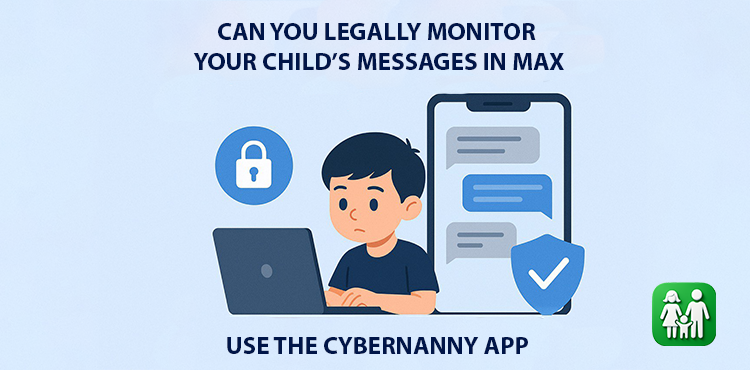Introduction
Children communicate in messengers, share photos and videos, and join group chats. Parents are worried: cyberbullying, scammers, dangerous links. It’s important to understand how to ensure a child’s safety in Max while keeping parental control legal and ethical.
Legality and Ethics of Parental Control
In short: in most jurisdictions, parental control over a minor’s account is allowed if the goal is the child’s safety. Key principles:
- The child is a minor;
- The purpose of control is protection, not surveillance;
- An ethical approach involves an open discussion with the child about the reasons for monitoring.
A simple example: instead of secretly reading messages, it’s better to explain, “We use tools to make sure no one is hurting you online.” This approach helps reduce tension and avoid conflict.
How Control Works in Max Messenger (Features, Notifications, Filters)
Max provides basic privacy tools, but not specialized parental features. For safe monitoring, third-party solutions are often used, offering the following capabilities:
Suspicious Contact Alerts
The system notifies parents when messages from unknown users appear or suspicious links are detected.
Content Filtering
AI analysis detects inappropriate language, threats, signs of bullying, and dangerous topics — without broadly revealing private messages.
Activity Monitoring
Reports on time spent in Max and alerts about unusual activity (such as late-night conversations) help parents spot potential problems in time.
Time Limits and Blocking
Setting limits (e.g., blocking use after 10 PM) helps manage screen time and support healthy sleep routines.
Important: such functions give parents oversight without directly reading every chat — which makes monitoring messages in Max legally acceptable.
How CyberNanny Helps Protect Your Child
CyberNanny is a parental control app focused on protection and risk prevention. Its core principle is not “spying” but detecting warning signs and sending timely alerts.
- Monitors risks in popular apps, including Max and other messengers;
- Blocks dangerous websites and applications;
- Shows usage statistics and warns about suspicious activity;
- Detects signs of cyberbullying, blackmail, and fraud.
Example: if a message says “Send a photo — or I’ll tell everyone,” the system detects the threat and alerts the parent without exposing other conversations.
Tips for Parents
- Discuss communication rules. Explain that personal data and photos should never be shared with strangers.
- Be transparent. Tell your child about the control tools you use and why.
- Maintain balance. Give them space, but keep communication open.
- Teach threat recognition. Help them identify bullying, phishing, and manipulation.
- Use CyberNanny as a support tool, not as punishment.
These simple steps help maintain both safety and trust.
Conclusion
Monitoring a child’s messages in Max can be done legally and ethically if it’s based on respect for privacy and prioritizes safety. Legal Max chat monitoring is possible through tools that alert to risks without invading personal life.
FAQ
1. Can I read my child’s messages in Max without their consent?
If the child is a minor, a parent has the right to ensure their safety. However, it’s recommended to discuss this openly and use a transparent approach.
2. Does CyberNanny violate a child’s privacy?
No. CyberNanny focuses on detecting risks and sending alerts — it doesn’t forward all message content.
3. Does CyberNanny work with Max on iPhone and Android?
Yes — the app is available for iOS and Android and syncs across devices.
4. What if the child is against monitoring?
Talk calmly, explain the reasons, and suggest choosing which features to enable together. This builds trust and reduces secrecy.
